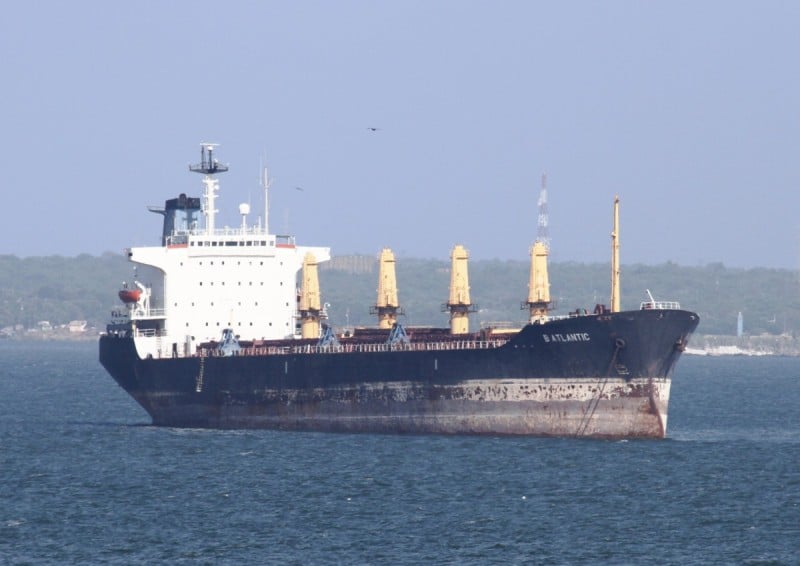The “B Atlantic” Supreme Court Decision – Attempted smuggling is not a “malicious act”
On 22 May 2018, the Supreme Court published its judgment in the case of the “B Atlantic”.[1]
The decision will be of particular interest to owners and operators whose vessels trade to areas where the risk of judicial detention is higher than normal. It highlights the risk that traditional war risks insurance may not respond to the detention and confiscation of a vessel by authorities exercising customs or police jurisdiction even in circumstances where the detention is ultimately caused by an otherwise insured peril and without the privity of the owner and assured.
In an unexpected turn of events, the Supreme Court considered the scope of the “malicious acts” peril in detail and ruled that it did not cover the present circumstances of attempted drug smuggling, which had been accepted as common ground between the parties.
Background
The B Atlantic was insured on the standard war risks terms contained in the Institute War and Strikes Clauses Hulls-Time (1/10/83) with additional perils.
When she was preparing to leave Venezuela, a large amount of cocaine was discovered strapped to the vessel’s hull. The vessel was detained by the Venezuelan authorities and ultimately confiscated.
The owner abandoned the vessel and claimed for a constructive total loss on their war risks insurance. They also claimed for sue and labour costs in respect of efforts taken to try to secure the release of the vessel. In total, the owner’s claim exceeded USD 20 million.
The owner was not privy to the attempted drug smuggling, which was ostensibly carried out by persons unconnected to the ship or the assureds, and the owner sought to rely on the terms of their war risks insurance which covered losses arising from “any person acting maliciously”.
The insurers denied cover and sought to rely on the exclusion of losses arising from “detainment by reason of infringement of customs regulations”. The insurers argued that confiscation arising from the lawful acts of a sovereign government is not a peril that the war risks insurance was intended to cover.
Counsel for the owner argued that the exclusion, which refers specifically to the peril of “detainment” but not malicious acts, must be subject to an implied limitation that it would not undermine or cut back the cover afforded for malicious acts of third parties. They also argued that the peril of detainment in these circumstances was no more than the mere manifestation of the malicious act of attempted drug smuggling and did not therefore operate as a concurrent cause of the loss.
The Supreme Court Decision
During the hearing, some members of the Supreme Court expressed the view that maliciousness required something more than recklessness by the perpetrator (and it was not clear that the drug smugglers were anything more than reckless with regard to the security of the vessel). The Court asked the parties for written submissions on this point during the hearing, which were submitted after the close of oral arguments.
After considering the authorities and the historical context of the Institute War Risks clauses, Lord Mance held that the malicious acts peril in question:
“should now be understood as relating to situations where a person acts in a way which involves an element of spite or ill-will or the like in relation to the property insured or at least to other property or perhaps even a person, and the consequential loss of or damage to, the insured vessel or cargo.” (para. 22)
In the Court’s opinion, the attempted drug smuggling was not malicious, because the smugglers did not intend any harm to come to vessel. In fact, the opposite was true: the smugglers no doubt wanted the vessel to sail from Venezuela and reach her destination safely and without delay.
This was an unexpected turn of events given that both parties had proceeded, at least since Flaux J’s first instance decision, to the Supreme Court, on the basis it was agreed that the drug smuggling was a malicious act.
The Court went on to consider the position based on the parties’ argued cases, assuming that there was a malicious act. This part of the Court’s decision, whilst obiter dicta, confirms the orthodox English law rule that where a loss is proximately caused by an insured peril and an excluded peril, the insurance will not cover that loss.
The Court found that if, hypothetically, the loss was caused proximately by the malicious act of the drug smugglers, it was also caused by the detainment of the vessel arising from infringement of Venezuelan customs regulations – the detainment was not only a mere manifestation of the attempted smuggling. The Court was not willing to limit the exclusion to the effect that it would not apply to malicious acts, and even if it had, that would have made little difference because the concurrent peril of “detainment” was operative and was clearly excluded by the terms of the insurance.
Accordingly, the owner’s claim failed.
Comment
It is essential for owners and operators to know whether their war risks insurance will respond to claims arising out of the detention of their vessels. That will ultimately depend on the terms of the insurance and the circumstances of the detention. Where the detention arises from the lawful act of a foreign government, whether for infringement of customs legislation or in the context of a criminal investigation, that is most likely excluded from traditional war risks policies. That may follow even in circumstances where the detention is the result of the act of third parties and in no way attributable to the owners.
This case now fits squarely within the line of authority on war risks cover in instances of detainment arising in circumstances of smuggling in the “Anita”[2]and the “Kleovulous of Rhodes”[3]. Such detainment is excluded from the traditional Institute War Risks cover.
We have commented previously on how a similar case might be determined under the Nordic Plan. We continue to advise several owners in respect of seizures and detentions under various terms of insurance and we are ready to give expert and measured advice to others that may find themselves in a similarly difficult situation.
Read the full Supreme Court judgment here.
[1]Navigators Insurance Company Limited and others (Respondents) v Atlasnavios-Navegacao LDA (Formerly Bnavios-Navegacao LDA) (Appellant) [2018] UKSC 26.
[2][1971] 1 WLR 882.







